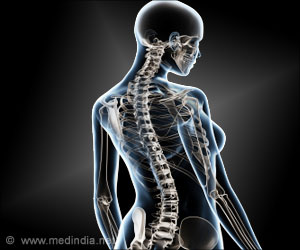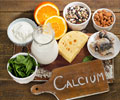Increasing calcium intake through supplements or dietary sources should not be recommended for fracture prevention, suggest two studies published in the BMJ.

Dr. Mark Bolland, Associate Professor at the University, opines that people, who are apprehensive about their bone health or bone fracture risk, do not need to worry about their calcium intake.
Calcium, an essential mineral for proper body function, is stored in your bones. The body requires vitamin D to absorb calcium.
Many international organizations including the US National Osteoporosis Foundation recommend high calcium intake for older people. The current guidelines recommend a daily intake of at least 1000-1200 mg of calcium and 800-1000 IU vitamin D for individuals aged 50 or older. At about this age, both men and women start to experience a condition called osteoporosis, a decline in the bone density that makes the bones brittle and fragile. In other words, your bone develops more porous, and calcium supposedly fills in the holes during old age. Millions of people across the world take the mineral calcium, hoping to keep their aging bones strong and prevent fractures, which half of all women eventually experience, as do many older men.
Recently, the safety of calcium supplements has become a hot topic in debates, and this led experts to recommend increasing calcium intake from dietary sources rather than by taking supplements. Primary sources of dietary calcium are milk, bread, cheese, vegetables and dairy products. However, the effect on bone health was still unknown.
In the first study, researchers found that increasing calcium intake from dietary sources or supplements produces only a small (one percent) increase in bone mineral density, and it is not likely to lead to a notable reduction in risk of fracture.
Karl Michaelsson, a professor at Uppsala University Department of Surgical Sciences in Sweden, in the editorial, says that it is time to change the recommendations to increase calcium intake beyond a healthy balanced diet.
Michaelsson suggests that 700-800mg/day of dietary calcium is enough for adults while noting the amount needed had been debated for decades.
He notes that the guidelines that recommend for increasing intakes of calcium and vitamin D consider the whole population aged 50 and above at risk for bone disease and bone fracture. He warns that most of them will not benefit from the recommendation and will be exposed instead to risk of adverse events such as constipation, cardiovascular events, kidney stones, or admission for acute gastrointestinal symptoms.
"The weight of evidence against such mass medication of older people is now compelling, and it is surely time to reconsider these controversial recommendations," he says.
He points to the significance of the interplay between vitamin D status and calcium intake in the prevention of fractures.
"Identifying the optimum interdependent thresholds for both would be a substantial clinical advance that could help to target interventions and potentially cut costs," he adds.
Overemphasis on high intakes of calcium without firm scientific evidence has probably hindered development in this research area.
The commercial eye of the global supplements industry probably plays a part in some of the advice to take supplements.
Dr. Carol Wham, a senior lecturer at Massey University, said the studies highlighted that not enough was known about calcium needs for older adults.
References
1. Mark J Bolland, associate professor, William Leung, health economist, Vicky Tai, medical student, Sonja Bastin, radiologist, Greg D Gamble, biostatistician, Andrew Grey, associate professor of medicine, Ian R Reid, professor of medicine2. BMJ 2015; 351 doi: http://dx.doi.org/10.1136/bmj.h4580 (Published 29 September 2015)
3. http://www.bmj.com/content/351/bmj.h4580
4. http://www.dairycouncil.co.uk/consumers/faqs/do-older-people-need-more-calcium
5. http://nof.org/
Source-Medindia













